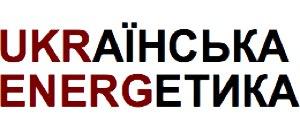The key conclusion of the published analytical report is that the proposals of the Ministry, though approved in general, should be improved in terms of some important aspects, and this means that Ukraine has made another step towards creating a competitive gas market. It should be noted that since the Energy Community is a highly formalized organization the Secretariat considered only the model proposed by the only authorized body, i.e. the Ministry of Energy and Coal Industry, and Naftogaz’s proposals were only taken into account. In fact, it is common sense to treat with caution monopolist’s proposals regarding restricting its own monopolistic position, though the Secretariat still took into account some rational ideas of Naftogaz.
First of all, the Secretariat concluded that the Ministry of Energy and Coal Industry was the only competent authority to manage the transmission system operator, and unanimously approved the system of independent and unbiased management thereof by its specialized division as proposed by the Ministry. At the same time, the Secretariat found the State Property Fund of Ukraine incompetent for this role in terms of both its status and functions.
However, the Energy Community criticized the plan of keeping the existing operator — Ukrtransgaz — for that role in the future. Instead, experts of the Energy Community suggested the creation of a brand new independent company to take control, among other, over the gas networks. On the one hand, this is exactly what Naftogaz proposed, but, they say, the devil is in the detail. While the state-owned giant was planning on creating such company within its own structure and gradually transfer to it the specific experience and functions of Ukrtransgaz, the Secretariat’s point is clear — the new operator must be completely independent from Naftogaz.
Other points of the plan are less clear. While the Secretariat apparently chooses a limited role in the assessment of compliance of this model with the very specific and comprehensible requirements of the Third Energy Package, it at the same time criticizes the Ministry’s attempts to develop unbundling of the transmission system operator into an ambitious strategic market reform by further reducing the influence of the state monopoly. And while the Secretariat quite vaguely suggests that the actually possible consolidation of the two systems is rather unadvisable for the future underground gas storage facilities, its comments on taking Ukrgazvydobuvannia PJSC out of direct control of Naftogaz are based on the economic forecast and assessment which are hardly within the scope of its competence. Maybe when the Energy Community becomes the Energy and Investment Community, the Secretariat’s de facto direct prohibition to take advantage of this apparently good opportunity to use international pressure on the Ukrainian authorities to implement most ambitious reforms in the sector will be more reasonable. Now it is not.
Authors of DiXi Group’s recent special research mostly approve of this conclusion of the Secretariat as it really attempts to find consensus between the competing concepts and take the most of each. We hope, however, that the Secretariat will not use its authority to influence the issues that are beyond the quite clear and understandable scope of the Third Energy Package, and the creation of the independent transmission system operator will be not the last but the first step in the far-reaching reforms that are expected to open way to real competition where there is still over-regulation and centralization.





